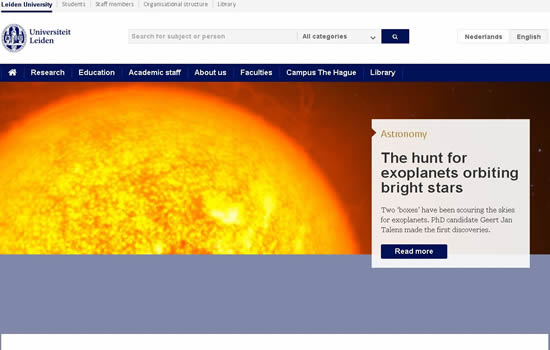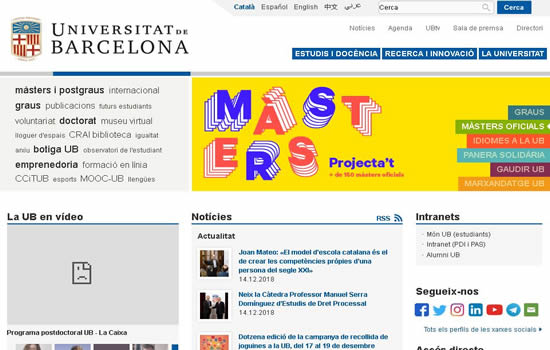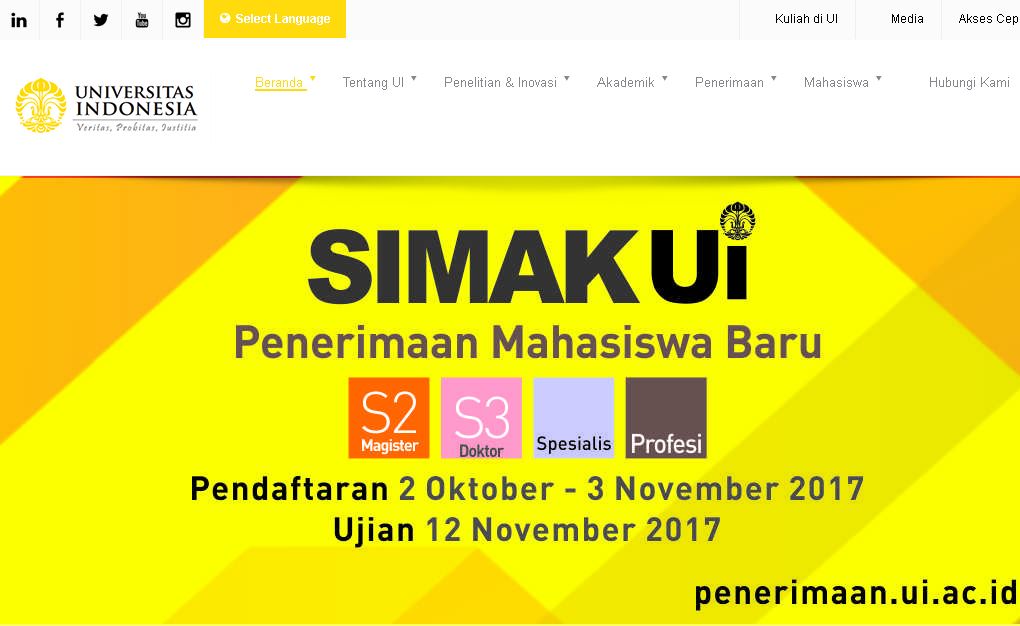选择热点
 荷兰莱顿大学
荷兰莱顿大学 西班牙巴塞罗那大学
西班牙巴塞罗那大学 巴西圣保罗大学 University of Sao Paulo, Brazil
巴西圣保罗大学 University of Sao Paulo, Brazil 台湾南华大学 University of South China in Taiwan
台湾南华大学 University of South China in Taiwan 科技大学 National University of Defense Technology
科技大学 National University of Defense Technology 南京大学 Nanjing University
南京大学 Nanjing University 上海复旦大学 Fudan University
上海复旦大学 Fudan University 泗水大学(Ubaya)
泗水大学(Ubaya) 印尼大学 universitas indonesia
印尼大学 universitas indonesia 越南某大学 Vietnam National University
越南某大学 Vietnam National University 菲律宾大学 University Of The Philippines
菲律宾大学 University Of The Philippines
关于can / could后接不式的用法分析
发布时间:2025-01-06
来源:大学网站
关于can / could后接不式的用法分析That day Mr Smith got up late, so he ran as fast as he could _________ the early bus.
A.
catch B.
to catchC.
catching D.
caught【分析】此题容易误选A,认为情态动词后只能接动词原形。
但是,错了,正确的答案是B。
其实情态动词 could 后本来有动词原形 run,只是被省略了,即此句的完整形式应是 …so he ran as fast as he could run to catch the early bus,其中的不定式 to catch the early bus 为目的状语。
又如:(1) My parents did what they could _________ my aunt and uncle.
A.
help B.
to helpC.
helping D.
helped(2) He read what he could _________ his knowledge.
A.
widenB.
to widenC.
wideningD.
widened以上两题均选B,即选不定式,且此不定式为目的状语。
但是,同学们若据此形成思维定势,也会麻烦。
为此,请再看两题:(1) He ran as fast as he could _________to catch the bus.
A.
hope B.
to hope C.
hoping D.
hoped 【分析】此题的最佳答案不是B,而是C,其中的现在分词短语 hoping to catch the bus 用作伴随状语,即一边跑一边在希望能赶上早班车。
(2) He spent every minute he could _________ foreign languages.
A.
study B.
to study C.
studying D.
studied【分析】此题也应选C,但是,它与上题选现在分词 hoping 表伴随有所不同,此题的 studying 其实与其前的动词 spend 有关,即此句中的 studying 为动名词,其前省略了介词 in。
注意spend 的句型:spend + 时间或金钱 + (in) doing sth。
【关于can / could后接不式的用法分析查看网站:[db:时间]】
A.
catch B.
to catchC.
catching D.
caught【分析】此题容易误选A,认为情态动词后只能接动词原形。
但是,错了,正确的答案是B。
其实情态动词 could 后本来有动词原形 run,只是被省略了,即此句的完整形式应是 …so he ran as fast as he could run to catch the early bus,其中的不定式 to catch the early bus 为目的状语。
又如:(1) My parents did what they could _________ my aunt and uncle.
A.
help B.
to helpC.
helping D.
helped(2) He read what he could _________ his knowledge.
A.
widenB.
to widenC.
wideningD.
widened以上两题均选B,即选不定式,且此不定式为目的状语。
但是,同学们若据此形成思维定势,也会麻烦。
为此,请再看两题:(1) He ran as fast as he could _________to catch the bus.
A.
hope B.
to hope C.
hoping D.
hoped 【分析】此题的最佳答案不是B,而是C,其中的现在分词短语 hoping to catch the bus 用作伴随状语,即一边跑一边在希望能赶上早班车。
(2) He spent every minute he could _________ foreign languages.
A.
study B.
to study C.
studying D.
studied【分析】此题也应选C,但是,它与上题选现在分词 hoping 表伴随有所不同,此题的 studying 其实与其前的动词 spend 有关,即此句中的 studying 为动名词,其前省略了介词 in。
注意spend 的句型:spend + 时间或金钱 + (in) doing sth。
【关于can / could后接不式的用法分析查看网站:[db:时间]】
相关阅读
目录列表
资讯列表
英语资讯


共0条评论
网友评论温馨提示:您的评论需要经过审核才能显示,请文明发言!